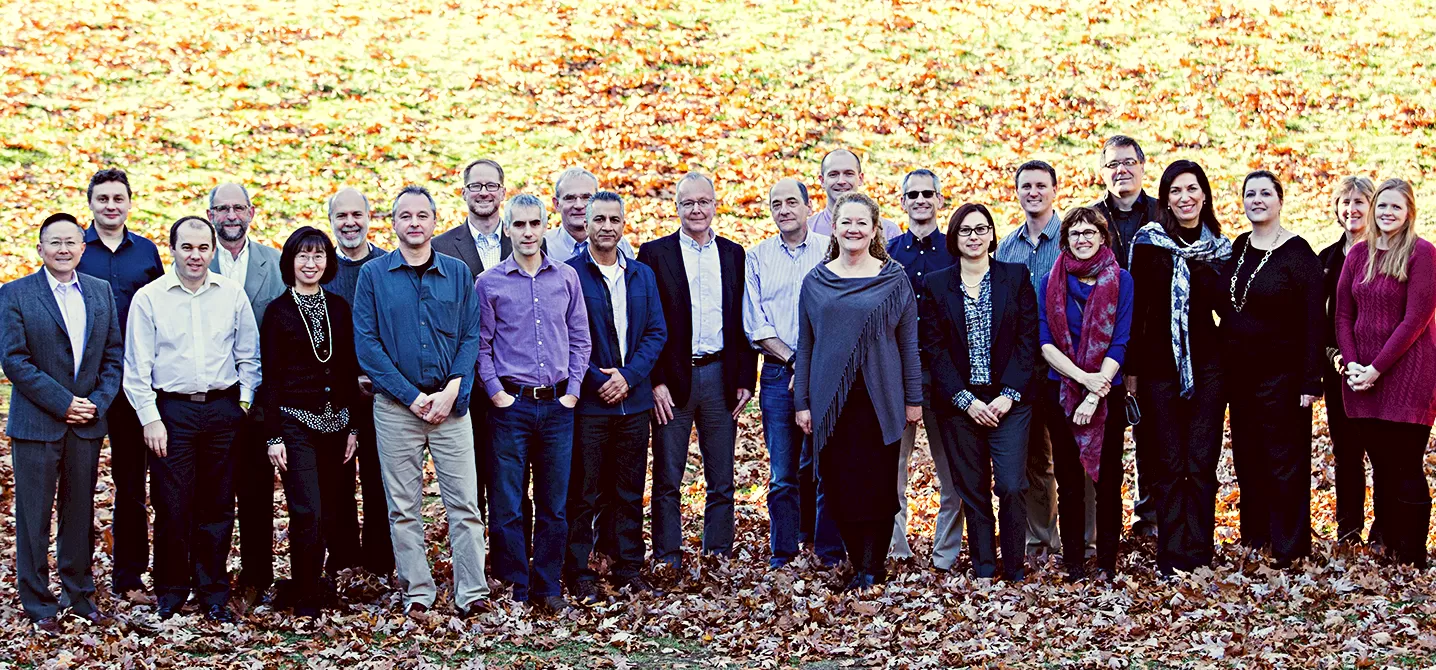Rett Researchers Gather in Boston

RSRT funds a broad scope of research from gene therapy to clinical trials to basic science. Throughout the year RSRT hosts consortium meetings and workshops that gather small groups of scientists working on a specific aspect of the disorder. However, every two to three years it’s important to bring everyone together to cross-fertilize ideas, identify knowledge gaps and determine how best to fill them.
RSRT hosted all of our researchers at the MIT Endicott House outside of Boston in November for three days of intense presentations and discussions. The meeting was divided into five sessions: MECP2 and Rett Syndrome, Activating MECP2, MECP2 Modifiers and Regulation, Gene Therapy and RNA Editing Approaches, Therapeutic Targets. Facilitators for each session (Michael Greenberg, Marisa Bartolomei, Terry Magnuson, Guangping Gao, Huda Zoghbi and Timothy Riley) moderated the Q&A after each talk and the general discussion sessions that peppered the meeting throughout.

“The RSRT is unique in its ability to fund teams of researchers working towards a common goal. The success of their approach was on full display at the recent meeting in Boston. I was particularly struck by the open sharing of unpublished data and by the cordial, yet frank, discussions on the best approaches to advance treatments. It is rare that researchers with seemingly competing interests can come together in such a collaborative effort, yet this is exactly what RSRT has been able to achieve. This approach is clearly paying dividends, as never before have I witnessed such exciting and hopeful research. I am confident that new treatments are in our near future. And while I always hesitate to use the word “cure”, dare I say that after this meeting I now feel that even transformative treatments seem within reach. The future for treating Rett syndrome is bright, largely due to the amazing efforts of the RSRT.”-Ben Philpot
Progress is being made on all fronts:
- The MECP2 Consortium and others are getting a handle on exactly what the Rett protein does
- Enthusiasm surrounding the possibility of activating the silent MECP2 is garnering industry interest
- The Gene Therapy Consortium is making encouraging advances with vector and dosage optimization and delivery routes
- Over three dozen modifiers of MECP2 have been opening the door to novel therapeutic approaches
- A number of downstream targets are being pursued and could yield clinical trials in the next few years.
Our scientists went home invigorated and inspired, as did the RSRT staff and trustees.



